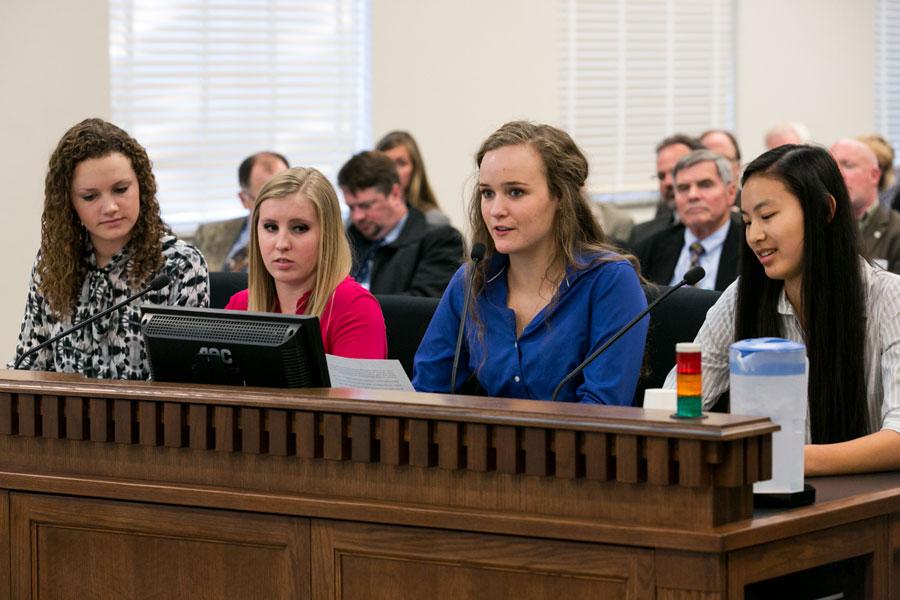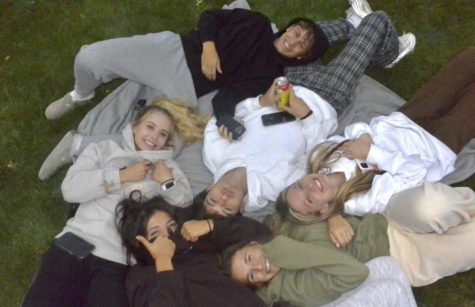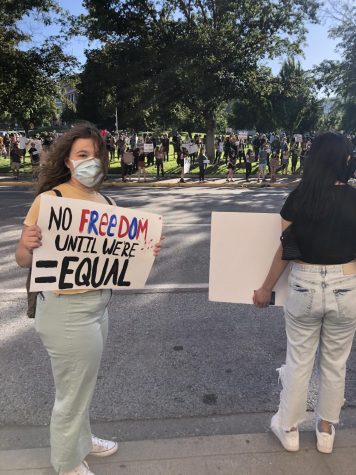Four history students take case to State Legislature
Photo Courtesy of Washington State Legislature
Seniors Katherine Robinson, Logan Brown, Carie Graves, and Jackie Bollinger present at a public hearing on Jan. 30.
Four Wenatchee High School students testified for House Bill 2410, which strives to enhance student’s nutrition in public schools through equipment, in Olympia on Jan. 30 to the House Committee on Capital Budget.
State Representative Brad Hawkins asked seniors Jackie Bollinger, Carie Graves, Logan Brown, and Katherine Robinson to testify for the bill after watching their presentation on obesity prevention given at the Project Citizen Hearings Showcase in December for the Citizen Washington course.
At the hearing, the group cited statistics and personal stories in favor of the bill. Preparation came from their own time, though Bollinger said much of the material was based off of the project. All the girls said speaking in the State Capital was a bit nerve-wracking yet enlightening.
“I haven’t gotten a lot of opportunities to see how government works besides in class,” Brown said. “So actually going there and seeing the hearing was interesting to me.”
Despite being slightly nervous, Hawkins said “they didn’t show it.”
“The girls did a fantastic job testifying at the hearing! They were just as I had remembered: smart, polished, and professional,” Hawkins said. “The entire committee was impressed, and I couldn’t have been more proud of them.”
The bill aims “to create competitive grants to schools to improve their facilities for healthier nutrition,” Hawkins said. The bill went to an executive session in this House Committee on Capital Budget this morning.
“I think the bill makes sense. Instead of setting how many cookies or how much sugar you can have, it gets to the root of the problem,” Graves said. “Some schools may not have a refrigerator to store healthy foods.”
Social studies teacher Malia Renner-Singer, who had the seniors during first semester for Citizen Washington, said this was the first year her students completed Project Citizen instead of a policy paper. For the project, groups of students had to research a problem, the current policy relating to the problem, alternative policies, and then recommend a policy all in a presentation to local leaders and policymakers.
“The amazing thing about Project Citizen is that you are really presenting to people of power,” Renner-Singer said. “It’s really cool to see [the group’s] hard work go beyond the realities of WHS.”




